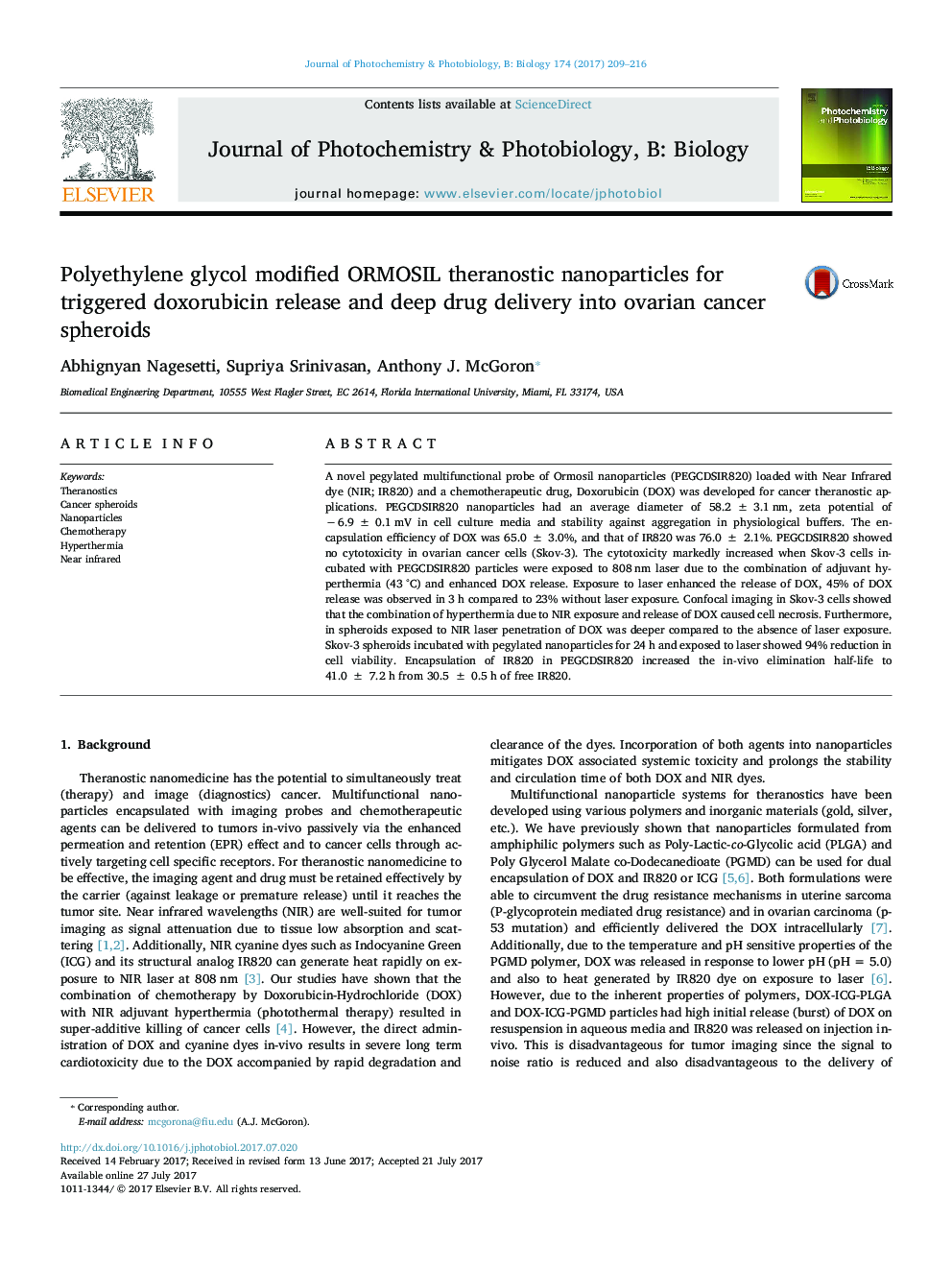| کد مقاله | کد نشریه | سال انتشار | مقاله انگلیسی | نسخه تمام متن |
|---|---|---|---|---|
| 4754337 | 1418059 | 2017 | 8 صفحه PDF | دانلود رایگان |

- PEGylated Ormosil theranostic nanoparticles for ovarian cancer applications
- Ormosil nanoparticles generate heat & release drug to near infrared laser exposure.
- Laser exposure markedly increased cytotoxicity in ovarian cancer cells.
- Exposure to laser improved drug distribution in 3-D ovarian cancer spheroids.
- Encapsulation of IR820 led to an increase in its in-vivo circulation time.
A novel pegylated multifunctional probe of Ormosil nanoparticles (PEGCDSIR820) loaded with Near Infrared dye (NIR; IR820) and a chemotherapeutic drug, Doxorubicin (DOX) was developed for cancer theranostic applications. PEGCDSIR820 nanoparticles had an average diameter of 58.2 ± 3.1 nm, zeta potential of â 6.9 ± 0.1 mV in cell culture media and stability against aggregation in physiological buffers. The encapsulation efficiency of DOX was 65.0 ± 3.0%, and that of IR820 was 76.0 ± 2.1%. PEGCDSIR820 showed no cytotoxicity in ovarian cancer cells (Skov-3). The cytotoxicity markedly increased when Skov-3 cells incubated with PEGCDSIR820 particles were exposed to 808 nm laser due to the combination of adjuvant hyperthermia (43 °C) and enhanced DOX release. Exposure to laser enhanced the release of DOX, 45% of DOX release was observed in 3 h compared to 23% without laser exposure. Confocal imaging in Skov-3 cells showed that the combination of hyperthermia due to NIR exposure and release of DOX caused cell necrosis. Furthermore, in spheroids exposed to NIR laser penetration of DOX was deeper compared to the absence of laser exposure. Skov-3 spheroids incubated with pegylated nanoparticles for 24 h and exposed to laser showed 94% reduction in cell viability. Encapsulation of IR820 in PEGCDSIR820 increased the in-vivo elimination half-life to 41.0 ± 7.2 h from 30.5 ± 0.5 h of free IR820.
Graphical Abstract182
Journal: Journal of Photochemistry and Photobiology B: Biology - Volume 174, September 2017, Pages 209-216